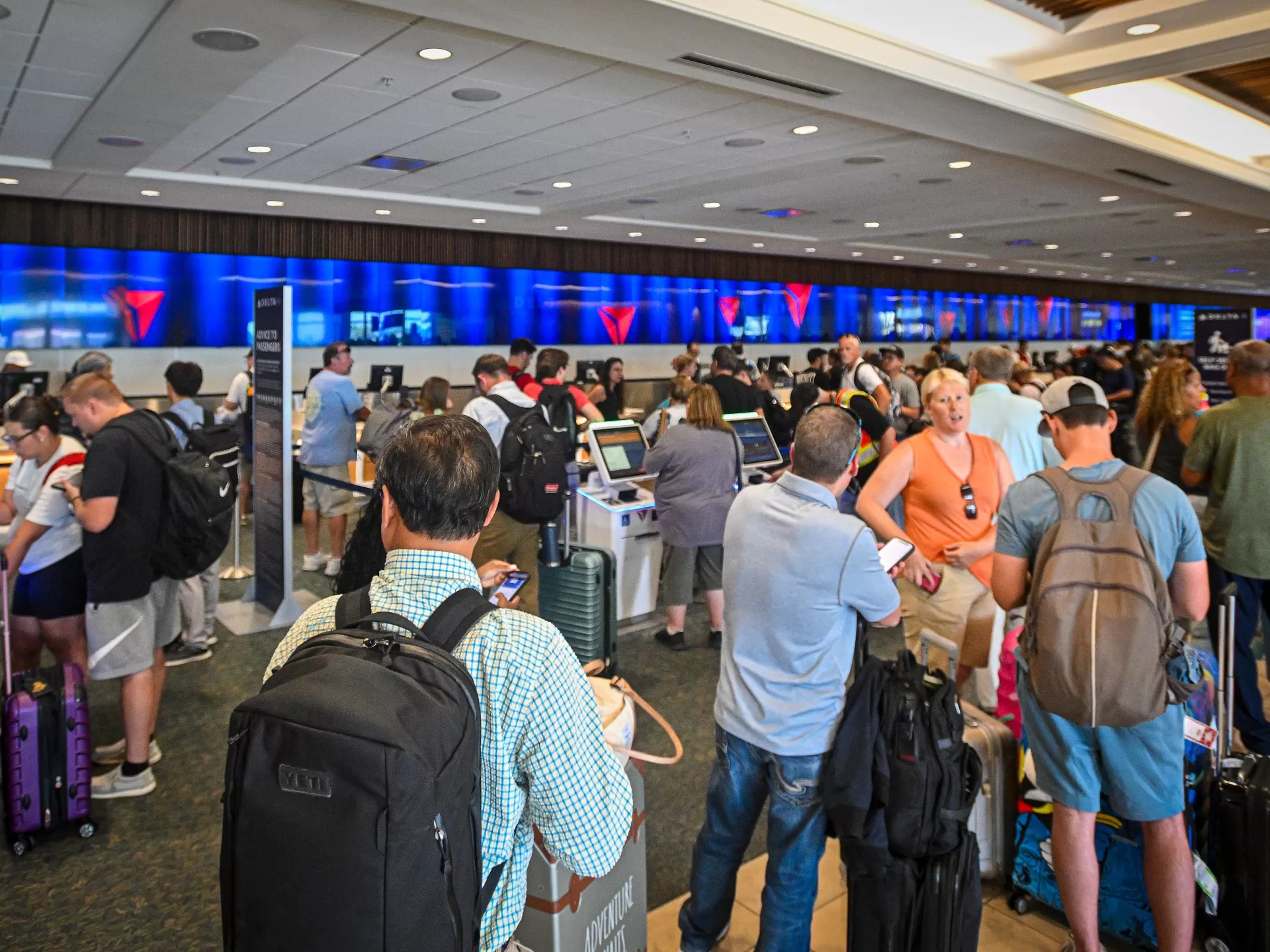Businesses and services around the world were slowly recovering after a massive technology outage wreaked havoc across the world and raised questions about the vulnerability of the global interconnected economy.
A faulty software update caused the “unprecedented” outage on Friday, grounding flights, knocking out financial companies and news outlets, and disrupting hospitals, supermarkets, small businesses and government offices.
By Saturday, several services were back online, but George Kurtz, the CEO of US cybersecurity company CrowdStrike – whose botched software update on its Falcon Sensor hit Microsoft’s Windows operating system – cautioned that a total recovery could take weeks.
CrowdStrike said it had rolled out a fix for the problem and Kurtz said he wanted to “personally apologise to every organisation, every group and every person who has been impacted” by the widespread glitch.
US President Joe Biden’s team was talking to CrowdStrike and those affected and was “standing by to provide assistance as needed”, the White House said in a statement.
“Our understanding is that flight operations have resumed across the country, although some congestion remains,” a senior US administration official said.
Junade Ali from Britain’s Institution of Engineering and Technology said the scale of the outage “is unprecedented, and will no doubt go down in history”, telling the AFP news agency that the last incident approaching the same scale was in 2017.
In Europe, major airports including in the German capital, Berlin, which had suspended all flights earlier on Friday, said departures and arrivals were gradually resuming.
However, dozens of European flights were cancelled. Turkish Airlines said it had pulled 84 flights and Italian officials confirmed about 80 departures had been cancelled.
Across Latin America, airports were asking passengers to arrive for flights hours earlier than usual.
Chinese state media said Beijing’s airports had not been affected.
Companies were left patching up their systems and trying to assess the damage, even as officials tried to tamp down panic by ruling out foul play.
The disruption “exposed a vulnerability in the economy and the volatility of the markets”, said Al Jazeera’s Kristen Saloomey, reporting from New York.
“Systems are being restored. Sorting the consequences for ordinary people may take longer,” she added.
Other experts said the incident should prompt a widespread reconsideration of how reliant societies are on a handful of technology companies for such an array of services.
“We need to be aware that such software can be a common cause of failure for multiple systems at the same time,” said Professor John McDermid from Britain’s York University, an expert in cybersecurity and software engineering.
He told AFP that infrastructure should be designed “to be resilient against such common cause problems”.
Today was not a security or cyber incident. Our customers remain fully protected.
We understand the gravity of the situation and are deeply sorry for the inconvenience and disruption. We are working with all impacted customers to ensure that systems are back up and they can…
— George Kurtz (@George_Kurtz) July 19, 2024
One analyst said that while Friday’s events were damaging for CrowdStrike he did not foresee competitors taking much market share as a result of the incident.
“This is clearly a major black eye for CrowdStrike and the stock will be under pressure,” said Dan Ives, an analyst at Wedbush Securities, but he told the Reuters news agency that the incident stemmed from a technical update and not a hack or cybersecurity threat, which he said would be “more worrying”.
CrowdStrike’s stock fell more than 11 percent on Friday, Reuters reported. The company, which previously reached a market cap of about $83bn, is among the most popular cybersecurity providers in the world, with close to 30,000 subscribers globally.
